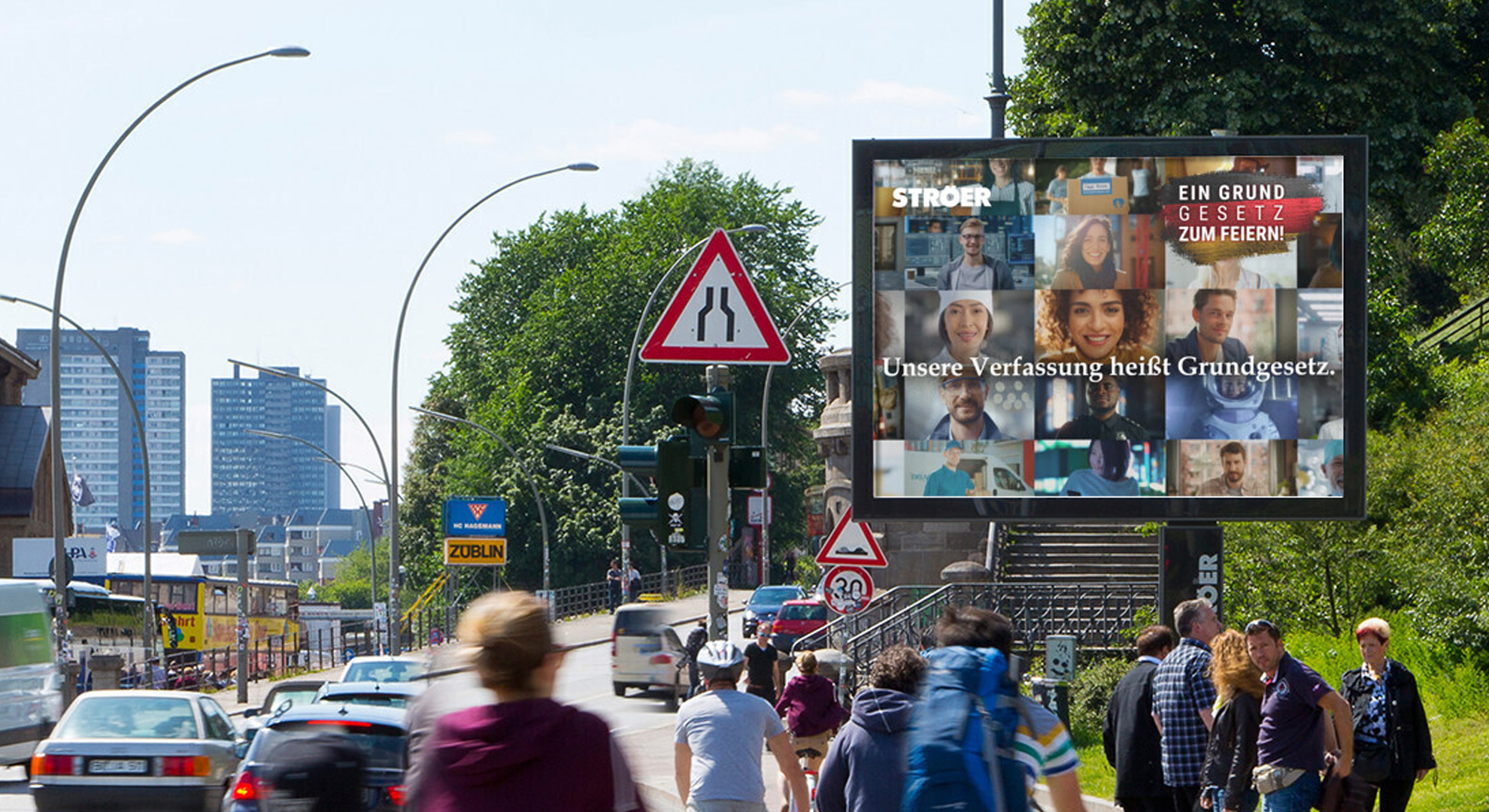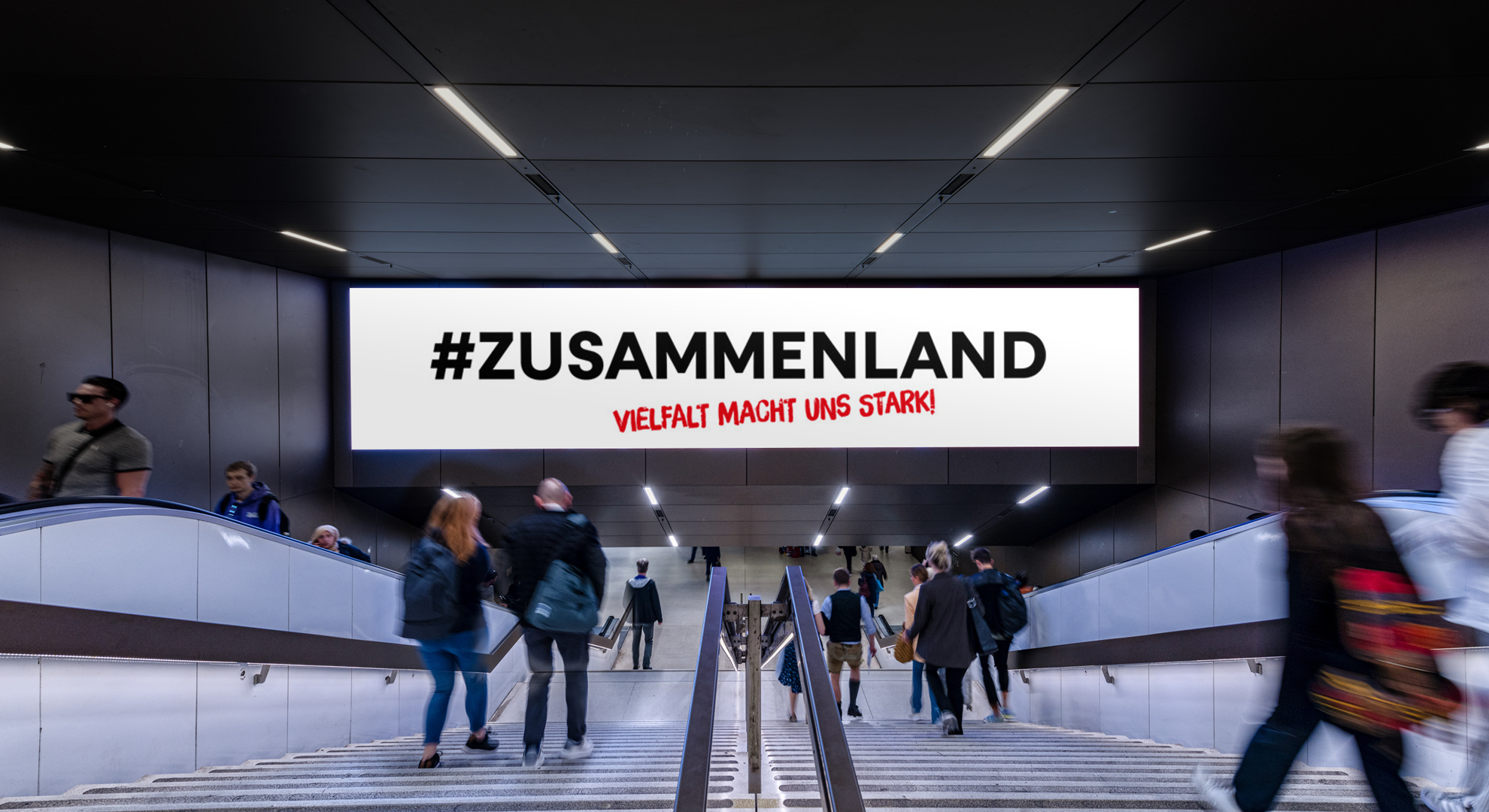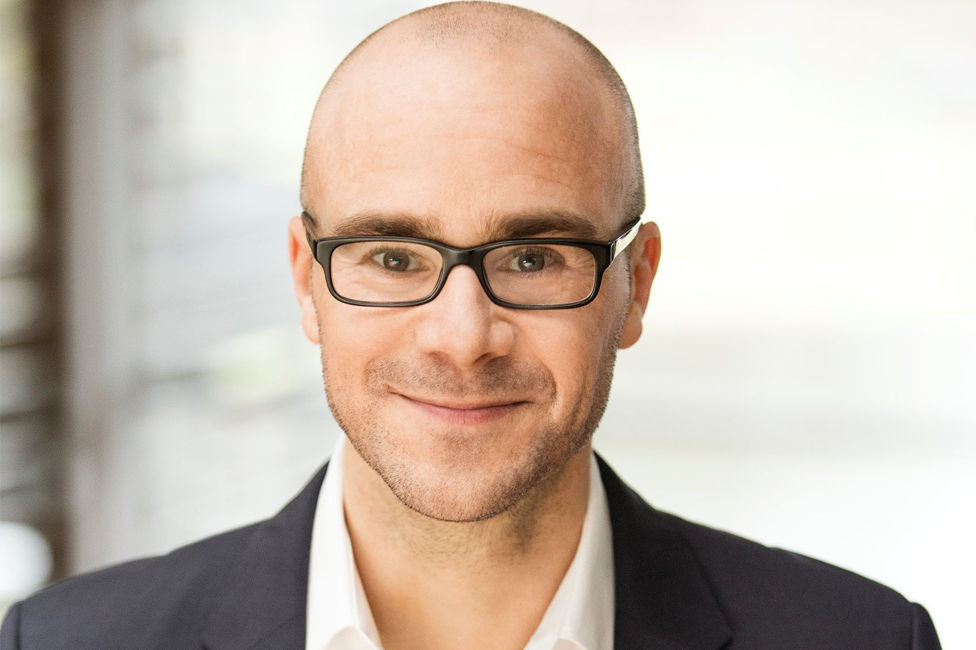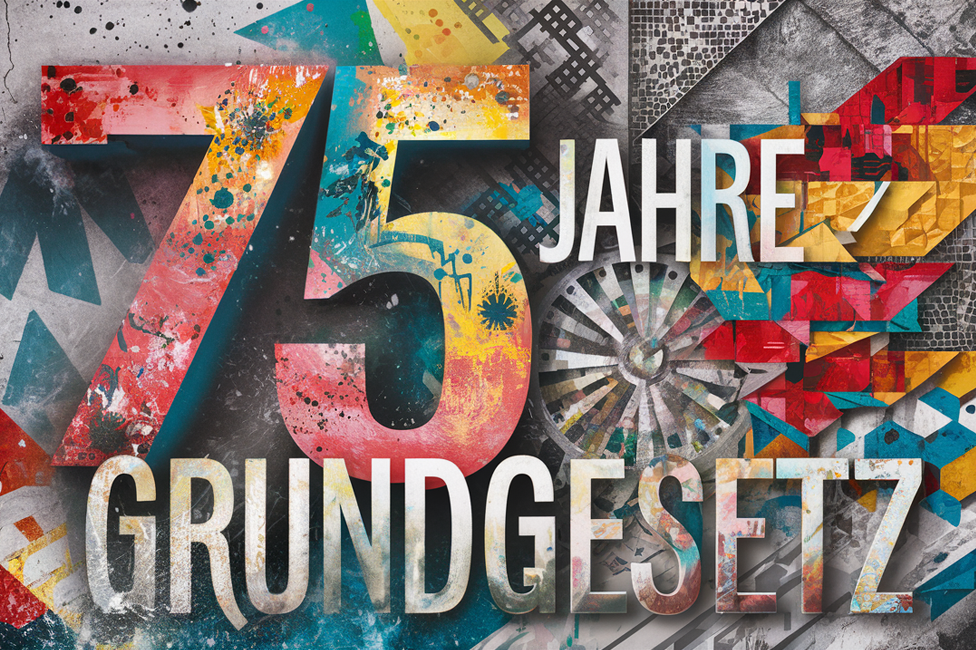We are aware of our responsibility towards society and the environment and integrate sustainable thinking and action into our own business. We do this by offering our customers and partners services that make an additional ecological and social contribution. We are also committed to open-mindedness, respect and community and use our media reach to promote awareness of sustainable, social and democratic behaviour. Because in addition to organisations, companies and the population must also represent democratic values.
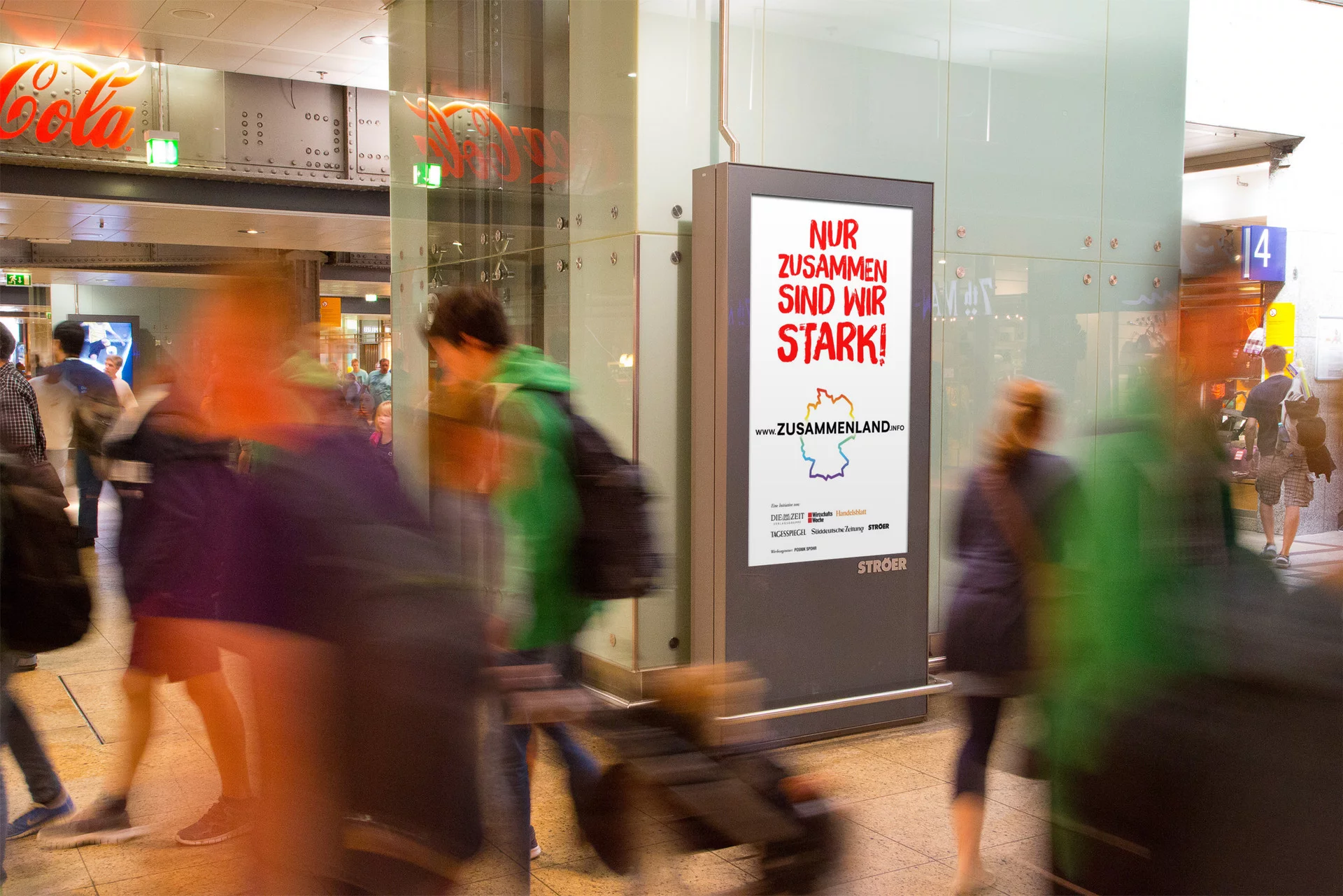
#ZUSAMMENLAND
ZUSAMMENLAND is an initiative launched by DIE ZEIT, Handelsblatt, Süddeutsche Zeitung, Tagesspiegel, WirtschaftsWoche and Ströer in spring 2024. Around 800 companies, foundations and associations have supported the initiative of the leading media houses.
ZUSAMMENLAND stands for democracy, openness to the world and respect. The initiative is entering its next round in the wake of the upcoming Bundestag elections. Together, we want to call for more dialog and greater cooperation.After all, cosmopolitanism, respect and community are values that make Germany not only a country worth living in, but also an economically strong one.
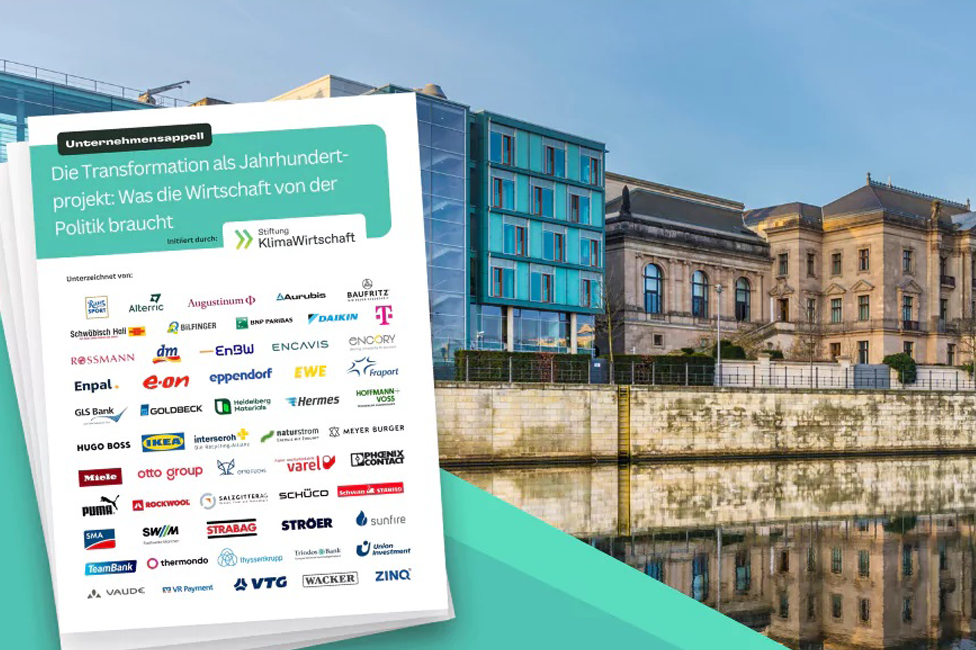
Stiftung KlimaWirtschaft - German CEO Alliance for Climate and Economy
More than 50 German companies have made a joint plea to politicians on the initiative of Stiftun KlimaWirtschaft. They include Deutsche Telekom, Rossmann, dm, EnBW, e.on, IKEA, Hugo Boss, Otto Group, Miele, Puma, Salzgitter, Strabag, thyssenkrupp, vaude, Wacker, Ströer and many more. In the paper entitled "The transformation as the project of the century", we commit ourselves to Germany as a industrial location, to climate goals and to our democracy and call for the democratic parties to join forces to enable long-term transformation processes and investment decisions in the economy.
On the one hand, sustainability and thus also the transformation towards climate neutrality must be integrated as a strategic pillar within a company. On the other hand, a clear political framework is required - across party lines. At Ströer, we are convinced that sustainability, business success and social prosperity are mutually dependent. The German economy can and must be a vehement driver of transformation when it comes to the goal of climate neutrality - if the political course is clear, consistent and long-term.

„Gesichter der Mehrheit“
The „Gesichter der Mehrheit“ (english: “Faces of the Majority”) initiative was launched in summer 2024. It aims to provide a platform that encourages people to take a stand and raise their voices in favour of tolerance and diversity. Over 40 protagonists from various walks of life show their faces and take a stand. Artists, presenters, journalists, teachers, doctors, nurses, the self-employed, employees and retired people have all taken part. What they all have in common is that they support the open society and want to lend a face to the democratic majority with their portrait and their commitment. Ströer supported the initiative with media coverage in public spaces: shortly before the state elections in Saxony and Thuringia, a Public Video campaign was shown in Düsseldorf, Cologne, Dresden and Erfurt on Public Video Infoscreen, Station and Mall.
„EIN GRUND GESETZ ZUM FEIERN!“
Information, education, and interaction - since mid-April, we have been showing an extensive content program on our digital media platforms, divided into several phases, to mark "75 years of the Basic Law". The content was developed by Ströer Media Creation. They are once again implementing flagship content on social issues that is linked to specific events and locations.
What are fundamental rights? What is the separation of powers? The spots explain the most important democratic concepts and facts for children and adults. And artists and photographers show how they interpret the Basic Law in pictures. Unicef is participating with a children's rights spot. We then take up the European elections within the program modules.
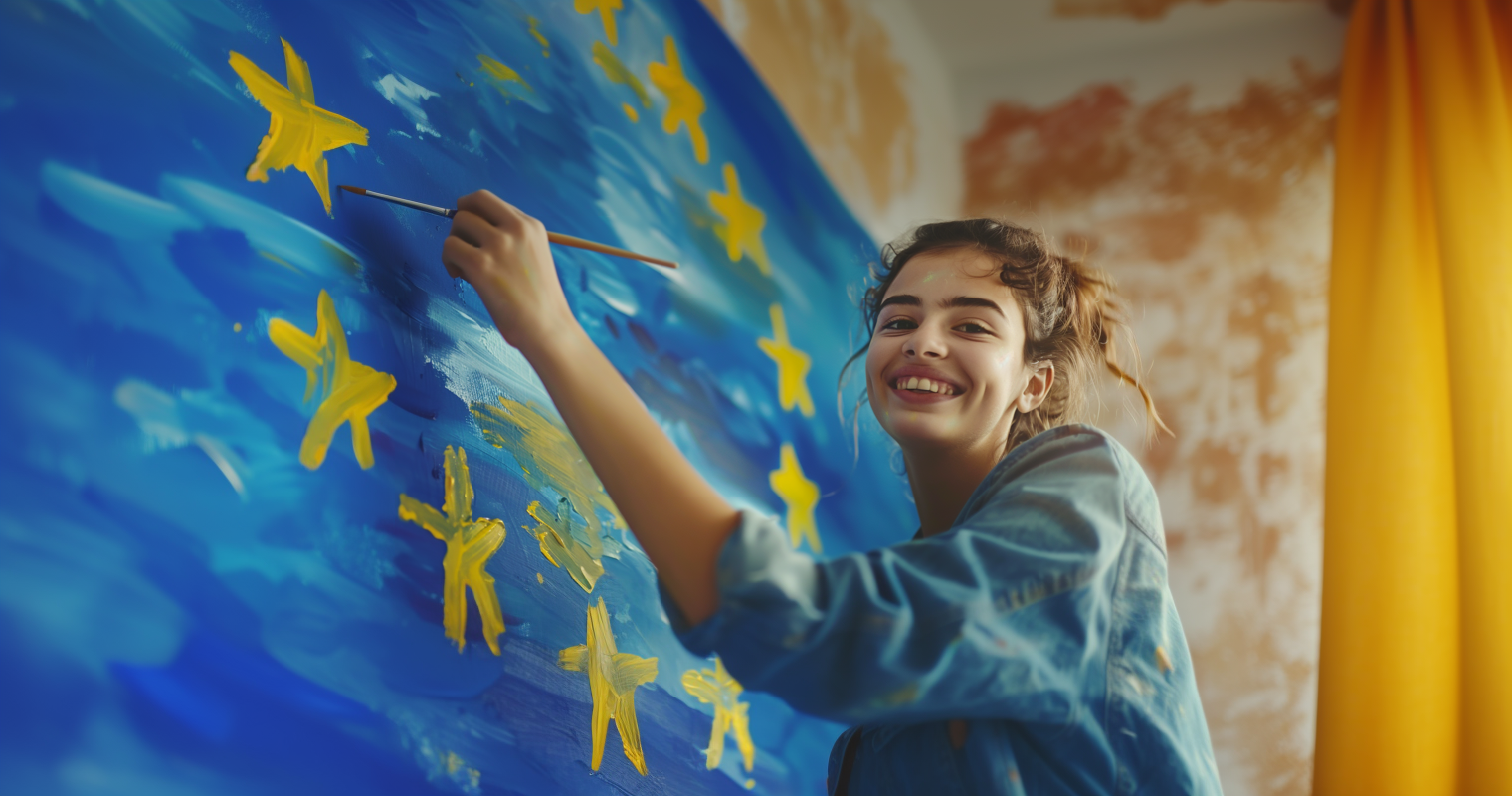
MOTIF COMPETITIONS
Children are our future and it is up to all of us to prepare children for living together in a diverse, democratic society. Children and young people must therefore also experience that their needs and ideas are taken seriously and that they are an accepted part of a social community. The voting age has also been lowered from 18 to 16 for the 2024 European elections. This means that many pupils will be able to exercise one of the strongest fundamental democratic rights in the European elections.
Until mid-May, children and young people can participate individually or as a class in two motif competitions and creatively express their views on the Basic Law and the European elections. A selection of exceptionally creative motifs will be broadcast on the digital city information systems in the pupils' respective home towns during the anniversary week and the week of the European elections.

